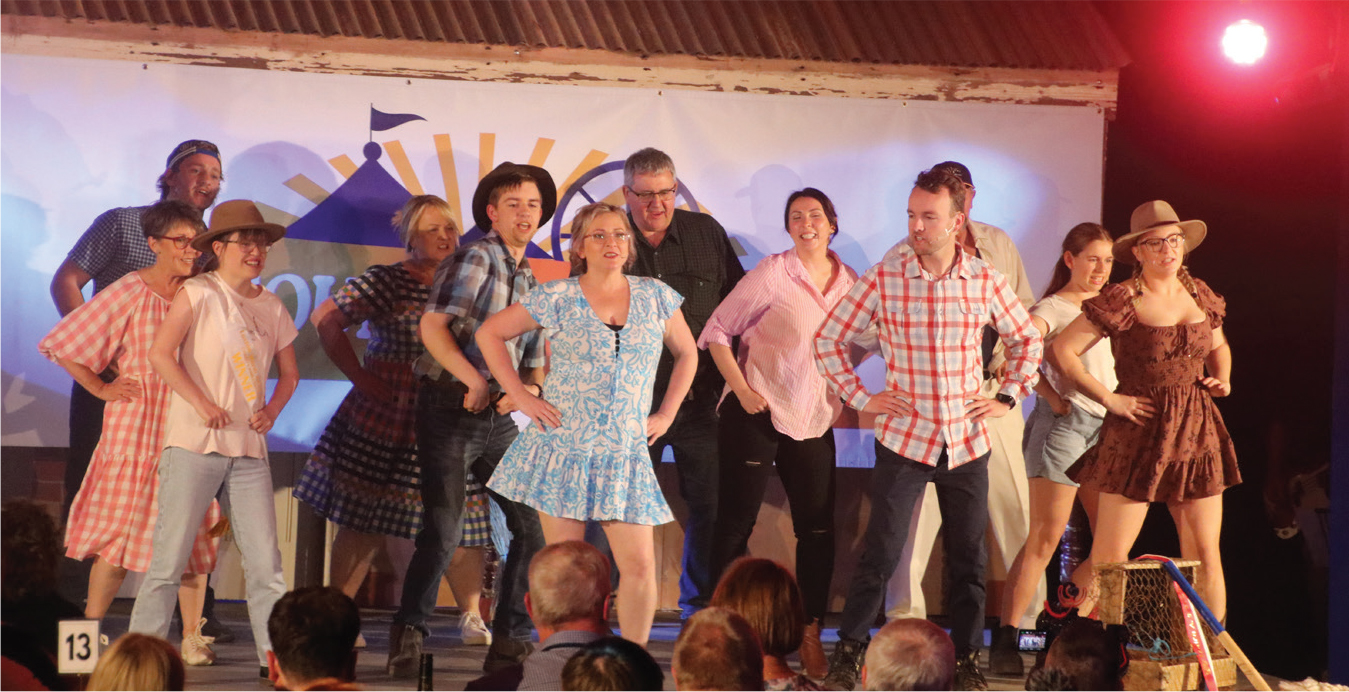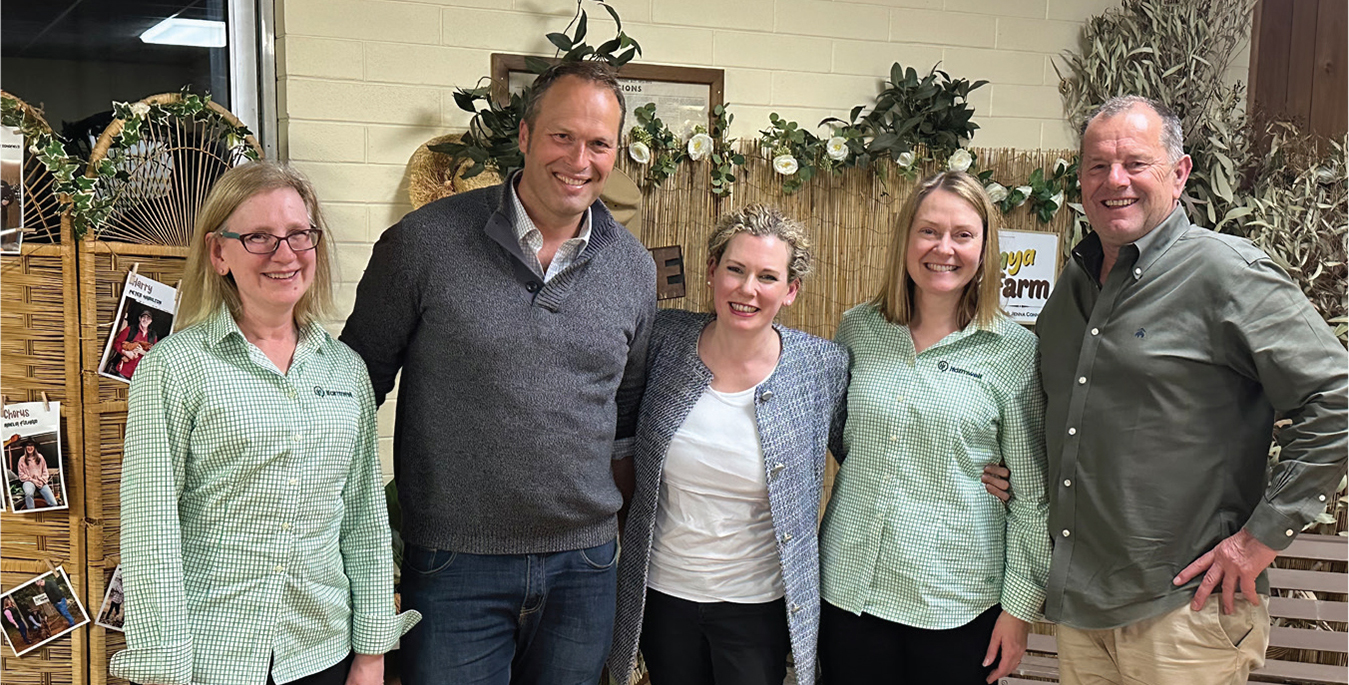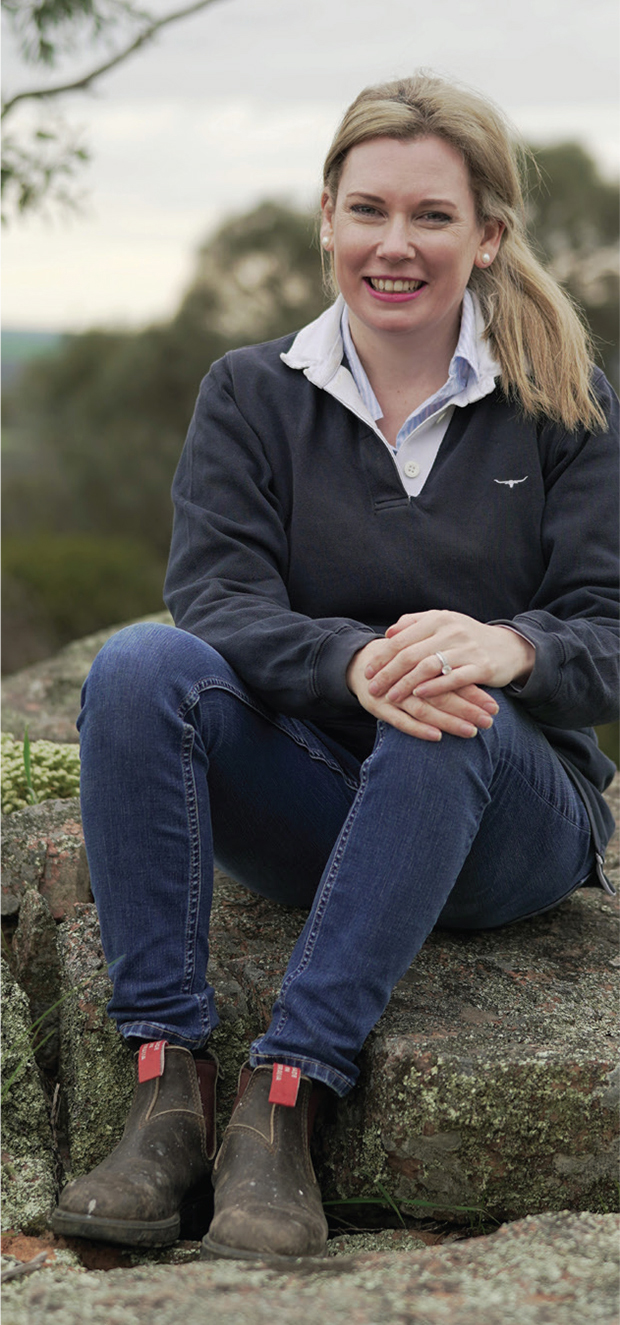Among rising national suicide rates, farmers are one of the most at-risk groups. They are 60 per cent more likely to take their own lives than other employed people, with a death every 10 days.
Not merely an individual impact, these losses devastate families and close-knit communities, with long-term, life-altering repercussions for all.
University of South Australia clinical psychologist Associate Professor Kate Gunn and her team are on a mission to end these frightening statistics. Funded almost entirely through the philanthropic support of generous individuals and organisations, the team is taking a holistic, multi-faceted approach to tackling rural mental health, before it escalates to tragedy.
The foundation for this, first launched by Gunn in 2018, is ifarmwell: a free online toolkit equipping farmers with practical strategies and tactics to cope with stress and halt spiralling thoughts of despair. Five core modules take the user through a self-paced journey – accessible any time or place by smartphone, including out on the tractor – lifting them out of habitual patterns of negative thinking and bringing them back to the present moment, re-focusing on family, friends, the farm, and the things that matter most to them in the here and now.
What makes ifarmwell particularly effective is that the modules have been designed by farmers, for farmers – helping to address one of the most critical challenges for farmers in distress. Immersed in a culture that prizes self-reliance and stoicism, one of the biggest obstacles for farmers’ mental health is their reluctance to seek professional mental health care: from fear of stigma within a small community, the belief that mental health professionals outside the community won’t understand the challenges of rural life, and, fundamentally, because it can be difficult for farmers to talk about their feelings.1
“Farmers want the person at the other end of the phone to understand their way of life,” says ifarmwell Program Manager Dr Natasha Caulfield.
“They are very good at picking someone who is not authentic, and that makes them less inclined to share what’s going on, because they don’t think the person could possibly understand or help them. There’s only one chance to get it right – after a bad experience, they may not be inclined to try again.”
Gunn understands this from her own personal experience growing up on a farm and witnessing tragedy within her rural community on South Australia’s Eyre Peninsula. Combining this with her experience as a researcher and clinical psychologist, she has involved farmers every step of the way in the development of ifarmwell, designing strategies and messaging that resonate strongly with rural communities.
“It’s based on what farmers say they want, combined with what research and clinical experience show will help, and delivered in the farmer’s ‘voice’,” Gunn says.
Underlining this, and a pivotal moment in ifarmwell’s success, was the approach from John Gladigau, a third-generation farmer in Alawoona, near Loxton, South Australia. Deeply concerned about his own and other farmers’ mental health during COVID – following five years of devastating drought and Australia’s worst bushfire season – Gladigau was keen to turn his talents for musical theatre to helping his peers. With the objective of creating light-hearted entertainment that communicated important mental health messages, he sought Gunn’s expertise.
The result was Kick Off Ya Boots, a riotously funny story of a close, multi-generational farming family, whose son falls in love with “a greenie, vegetarian journalist from the city”. With clever parodies of feel-good popular songs, such as Dolly Parton’s “9 to 5”, a cast of Loxton locals explored the common challenges of farming families – delivering practical strategies for managing difficult circumstances, in the context of a warm-hearted celebration of rural life.
At the end of each dinner theatre-style performance, audience members were encouraged to carry on the discussion at their tables by scanning a QR code and sharing something they would do differently in their lives, having watched the show. Later, they received a reminder check-in SMS message a week later and then a final SMS to see if they had done the actionable goal.
The show was a huge hit, selling out two years running (2021-2022) and again in 2024. But even more importantly, it became a powerful gateway for taking ifarmwell more broadly to the community. Armed with food, music and humour, Gunn and Gladigau successfully transcended barriers to start a rural mental health movement.
With clear evidence of a boost to farmers’ wellbeing, they continued to build the groundswell by launching Vocal Locals: a group of 10 Loxton farmers and community members who completed the ifarmwell modules, received weekly wellbeing coaching, then posted every week for eight weeks as social media ambassadors, sharing the ways in which they were investing in their mental health.
Gunn also launched the ifarmwell modules as an eight-part podcast, voiced by renowned former ABC radio presenter Drew Radford.
The outstanding success of these initiatives earnt the team two major awards presented at Parliament House. The 2022 Farmer of the Year Award for Excellence in Agricultural Research from ABC Rural and the Kondinin Group, and National LiFE Award for Innovation from Suicide Prevention Australia – followed by the Community Champion accolade in the 2023 Universities Australia Shaping Australia Awards, which led to a host of articles, radio interviews, and invitations to speak at key agricultural conferences that have continued the positive exposure.
Yet, none of this would have been possible without philanthropic support.


Top: The cast of Kick Off Ya Boots in action
Bottom: Dr Donna Hughes-Barton, Research Fellow; David Jochinke, National Farmers’ Federation President; Associate Professor Kate Gunn, Enterprise Fellow (Rural Health), Clinical Psychologist and Founder ifarmwell; Dr Natasha Caulfield, ifarmwell Program Manager and Tim Whetstone MP, Member for Chaffey

Associate Professor Kate Gunn, Enterprise Fellow (Rural Health), Clinical Psychologist and Founder ifarmwell
Contributions from charitable trusts and foundations, including generous support from the NAB, Thyne Reid, James and Diana Ramsay and Lang Family Foundations, have been essential for developing the ifarmwell platform and building the team that supports, promotes and grows it. Communities that have been impacted by suicide have also contributed.
While Gunn is funded through her employment with UniSA, other members of the ifarmwell team are funded through a mix of philanthropy and project-based funding.
This team is critical for continuing the research and testing of the efficacy of existing resources, for developing new ones – such as the two most recent modules on bushfire and building healthy relationships – and for increasing ifarmwell’s impact across Australian farming communities, nationwide.
Recent support from SA Drought Hub also helped the team to map out other rural wellbeing initiatives across Australia, turning ifarmwell into a powerful collaborative portal of free mental health resources.
But it’s still just the tip of the iceberg for meeting ifarmwell’s objectives – and for their plans.
Having gained accreditation from Suicide Prevention Australia in 2023, Gunn and her team are now seeking funding to create a dedicated national helpline, in partnership with Lifeline Australia, the National Farmers’ Federation and several different groups. This would be supported by a national education program to raise awareness about strategies farmers can employ to improve their own wellbeing and to help change attitudes that hinder help-seeking. The success of these education campaigns would be monitored through the Regional Wellbeing Survey conducted by the WellRes team at the University of Canberra, which measures wellbeing, resilience and liveability across Australia; the whole initiative would be managed by a steering group, chaired by a farmer.
As well as creating much greater national awareness of the mental health support available for farmers, this program will help close the loop in services available by providing the crucial safety net for crisis intervention: someone at the end of the line who can interrupt extreme pain and save a life.
There are already models for this in the UK, US and Canada. Lifeline Australia has also demonstrated the power of a specialist helpline with the temporary dedicated bushfire helpline established in 2020, in response to the dramatic increase in crisis calls during that period.
The specialist farmer helpline would be a longer-term service, delivered by Lifeline Australia, which is Australia’s largest, oldest and most experienced frontline provider of suicide prevention, and co-designed with farmers.
“In 2024, we surveyed farmers on what they would most like from a helpline – what they think it should look like, whether they want a mental health professional at the end of the line, or a farmer, with escalation to mental health professionals if needed,” Caulfield says.
“Given the challenging season being experienced in many farming communities across Australia at the moment, we would love nothing more than to be able to refer them to an accessible helpline, where the person at the end of the phone ‘gets farmers’ and can seamlessly transfer them to a mental health professional where necessary. That’s what farmers have told us will help.”
Despite ifarmwell’s practical success in rural communities, the team was unsuccessful in gaining Federal government funding for this valuable initiative in the 2023, 2024, and 2025 budgets.
In the meantime, the third installment of Kick Off Ya Boots has hit the road. This time, the show is a professionally produced film of the Loxton performers, presented at six dinner venues throughout South Australia, surpassing the target of 600 to reach another 900 people. This has been generously funded by SA Drought Hub, which also supported the development of conversation card decks for guests, another initiative that is testing well.
“These have been a novel way of getting people to talk,” says Caulfield. “They are highly portable and accessible – you can easily carry them with you, and they’re not locked in your phone or laptop.”
"Kate has been great at coming up with new ideas on how to reach more people. She realised in her clinical practice that many of her clients were coming in with similar issues, and she was providing them similar advice. This really prompted her to think about how she could get the message out to more people – so they can get over all that internal struggle and live every day to the full. She went from one-to-one support to one-to-many.
“The South Australia Kick Off Ya Boots dinner tour will be a pilot for what could potentially be a national roll-out.”
Through comprehensive evaluations published in peer reviewed scientific journals and anecdotal evidence – both from grateful individuals and friends and family members – the ifarmwell team knows it works.
“Farmers play a crucial role in sustaining our communities and economies, as well as supporting the lifeblood and wellbeing of the communities in which they live. It’s unacceptable to lose one every 10 days. There’s a lot more we hope to be able to do, to help them.”